The Ultimate Guide to Tile Selection for Your Home
Are you in the midst of a home renovation and facing the task of selecting tiles for your bathroom, kitchen, or living room? With a myriad of choices available, our aim is to ensure that you find the ideal fit that not only complements your style but also stands the test of time, offering enduring beauty and functionality.
Four Types of Tile
Let's delve into four different types of tile: glass, marble, porcelain, and ceramic. Each type has its unique characteristics and ideal uses in various areas of your home.
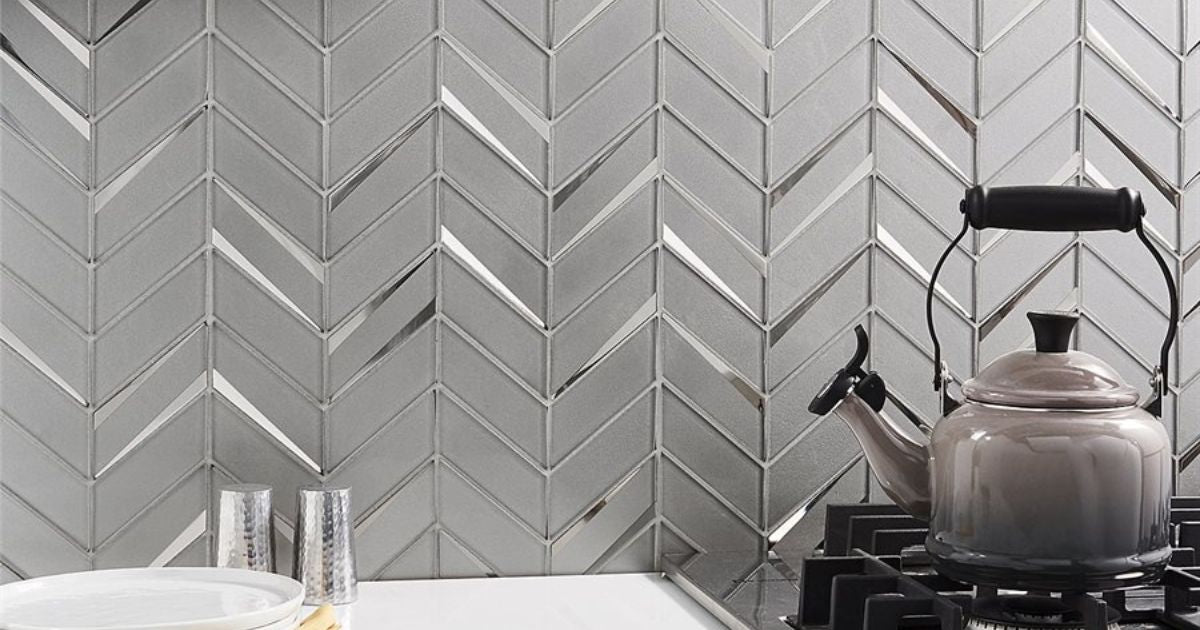
Giazza Milano by Soho Studio (Available to order at Procida Tile)
Glass Tile:
Glass tile is undeniably stunning, adding a touch of elegance to any space. However, glass may not be the most durable option for all applications. While some recycled composite glass tiles are suitable for certain applications like shower floors, they are not recommended for high-traffic areas.
Glass is perfect for backsplashes and wall applications, but it's best to avoid using it on floors where the risk of breakage is higher.
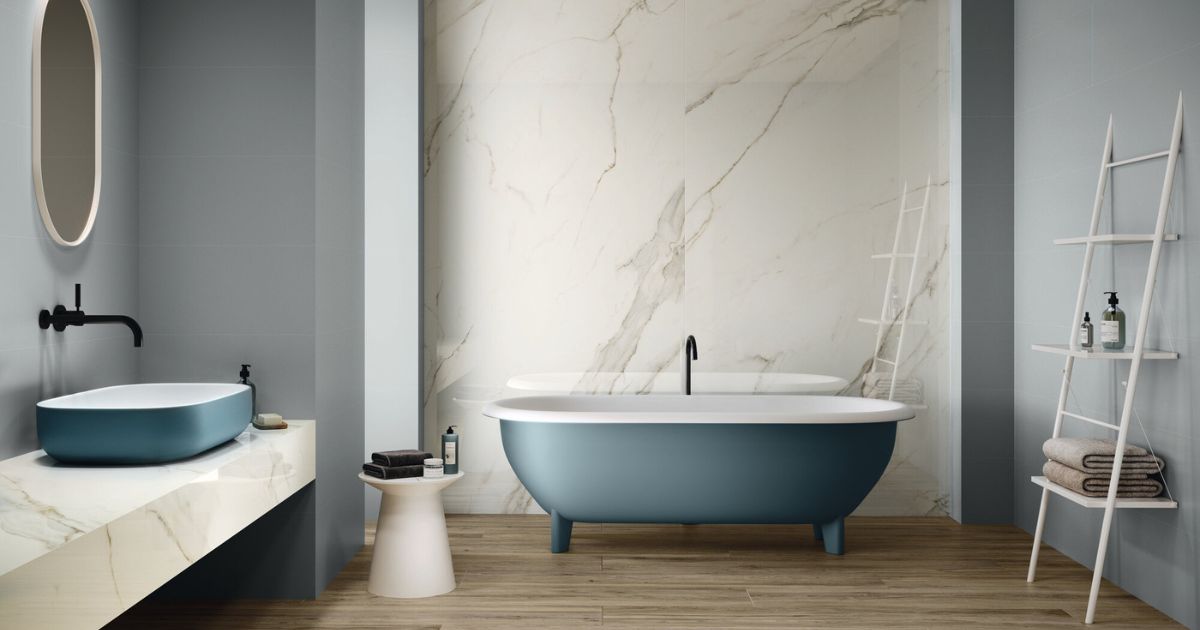
Calacatta White by Ape Grupo (Available to order at Procida Tile)
Porcelain Tile:
Porcelain is renowned for its durability and versatility. It's suitable for floors, walls, and even outdoor spaces. With advanced manufacturing techniques, porcelain now comes in various designs, including marble, concrete, and wood looks.
Its resistance to water and wear makes it ideal for bathrooms, kitchens, and high-traffic areas. Porcelain is the go-to choice for long-lasting, low-maintenance tiling solutions.
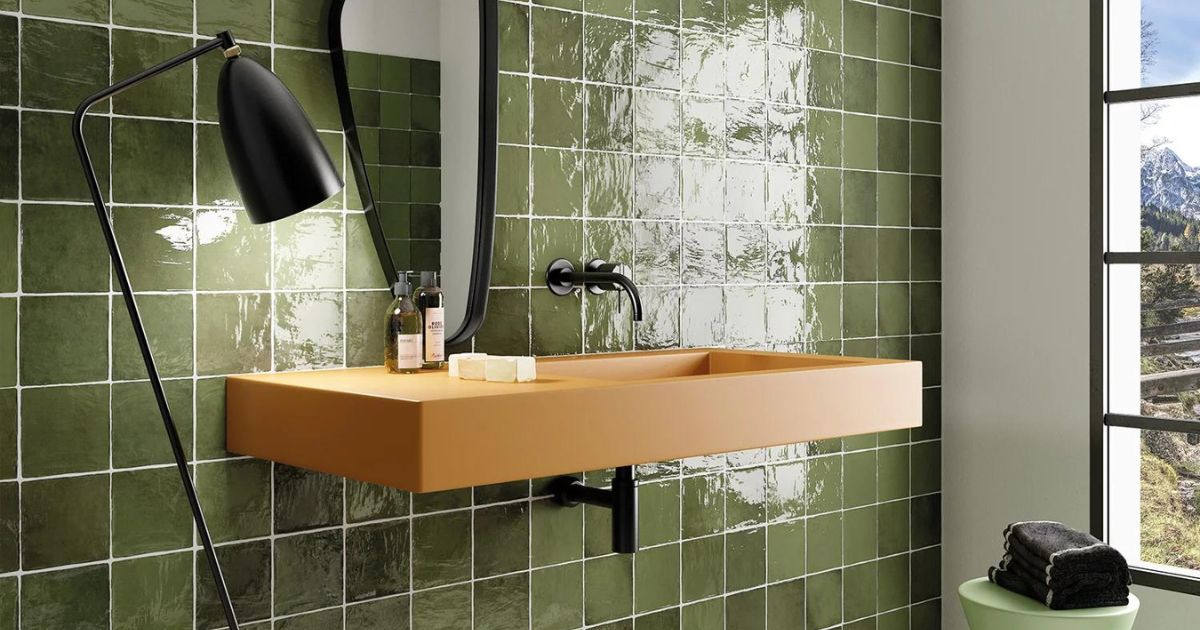
La Riviera Botanical Green by Equipe (Available to order at Procida Tile)
Ceramic Tile:
Ceramic tile, while traditionally used for both walls and floors, is now primarily recommended for light residential applications. Its softer clay body makes it less durable than porcelain, making it more prone to cracking, especially on floors.
Ceramic tiles are best suited for wall applications, offering a wide range of designs from classic subway styles to intricate mosaics.

Bottocino by Otto Tile & Mosaic (Available to order at Procida Tile)
Natural Stone Tile:
Natural stone, such as marble, adds timeless beauty to any space. Despite concerns about its porous nature, proper sealing can ensure its longevity.
Natural stone tiles offer unique variations and textures that cannot be replicated, making them ideal for luxurious bathrooms and elegant kitchens.
Choosing the Right Tile for Each Room
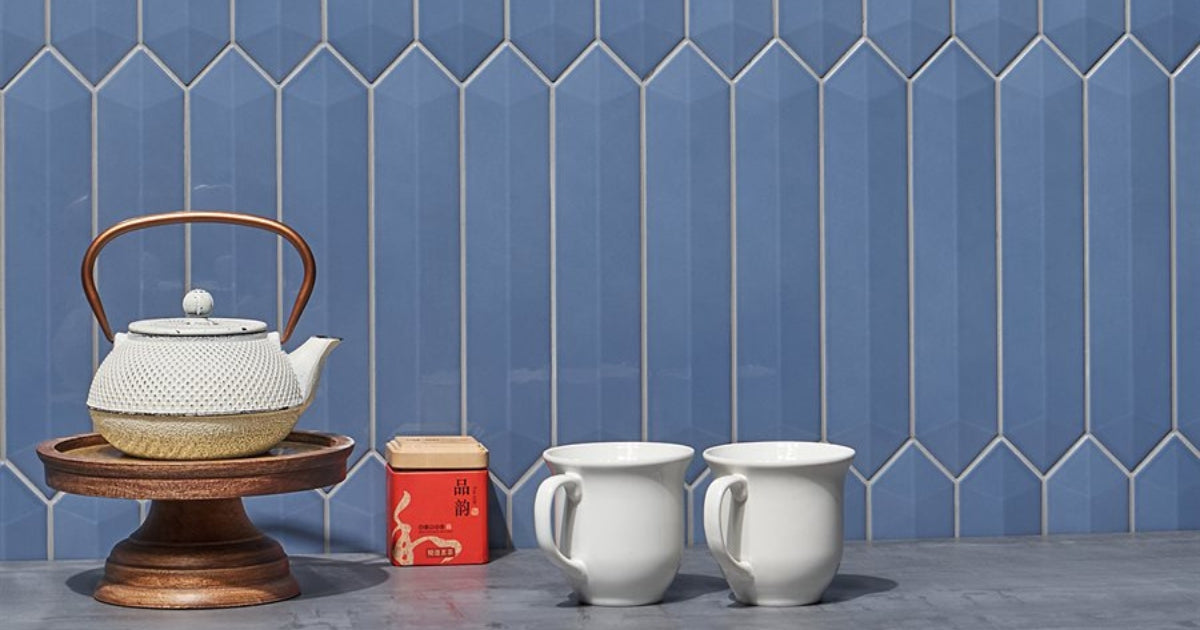
Clark Contour Marine by Soho Studio (Available to order at Procida Tile)
Kitchen:
For kitchen floors, porcelain is the top choice due to its durability and resistance to stains and spills. Porcelain, glass, natural stone, or ceramic tiles can also be used for backsplashes, providing endless design options. Avoid glass tiles for kitchen floors due to their susceptibility to breakage.
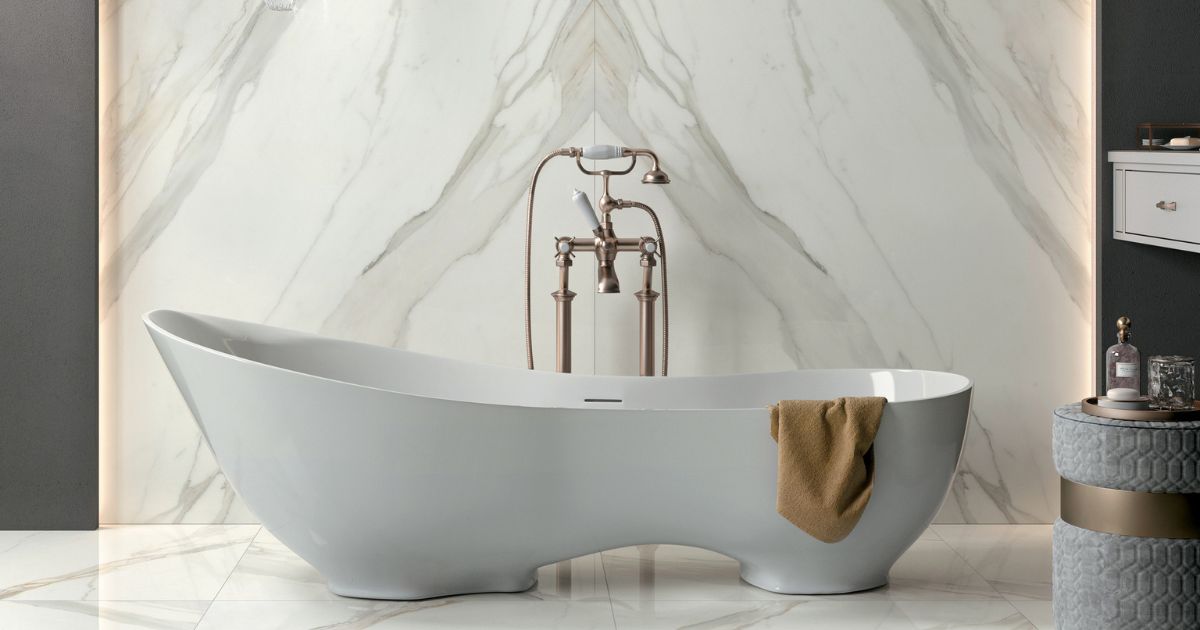
Cosmopolitan by Mirage (Available to order at Procida Tile)
Bathroom:
In bathrooms, porcelain tiles shine for both floors and walls, offering water resistance and easy maintenance. Consider large format tiles to visually enlarge smaller bathrooms. While glass tiles can add a touch of sophistication to shower walls, porcelain is recommended for durability, especially in high-traffic family bathrooms.

Oudh Elem by Mirage (Available to order at Procida Tile)
Living Room and Bedroom:
For living rooms and bedrooms, where comfort and aesthetics are paramount, porcelain tiles with wood or stone looks offer the best of both worlds. Natural stone tiles can also create a luxurious ambiance, but ensure proper sealing to prevent damage.
Sealing: Enhancing Longevity and Protection
Sealing your tiles is a vital step in ensuring their longevity and protecting them against stains, moisture, and wear. Whether you've chosen porcelain, ceramic, or natural stone tiles, proper sealing enhances their durability and maintains their aesthetic appeal.
For porcelain and ceramic tiles, sealing can provide an additional layer of protection against stains and moisture infiltration. Sealing the grout lines helps maintain the overall appearance of tile installations and prevents discoloration as well as moisture from seeping into the substrate.

Natural stone tiles, prized for their unique veining and texture, require sealing to protect their porous surface from staining and moisture damage. Depending on the type of stone—whether it's marble, granite, or slate—different sealants may be recommended.
Applying a high-quality penetrating sealer ensures comprehensive protection while preserving the natural beauty of the stone. The good news is that there are sealers on the market that last for fifteen years!
When sealing your tiles, always follow the manufacturer's recommendations and choose a quality sealer suited to the specific tile material and application. Properly sealed tiles not only maintain their appearance but also offer long-lasting protection against everyday wear and tear.
Maintenance: Keeping Your Tiles Pristine
Maintaining the beauty and longevity of your tiles is crucial to preserving the elegance of your home. Whether you've opted for glass, porcelain, ceramic, or natural stone, regular maintenance ensures they remain pristine for years to come.
For glass tiles, a gentle cleaning solution and soft cloth suffice for regular upkeep. Avoid abrasive cleaners to prevent scratches and maintain their transparency.
Marble tiles, known for their timeless beauty, require a bit more consideration due to their porous nature. Sealing your marble tiles with a high quality and long-lasting sealant provides essential protection against stains and moisture penetration. For daily cleaning, a mild detergent and warm water solution effectively remove dirt without damaging the surface.
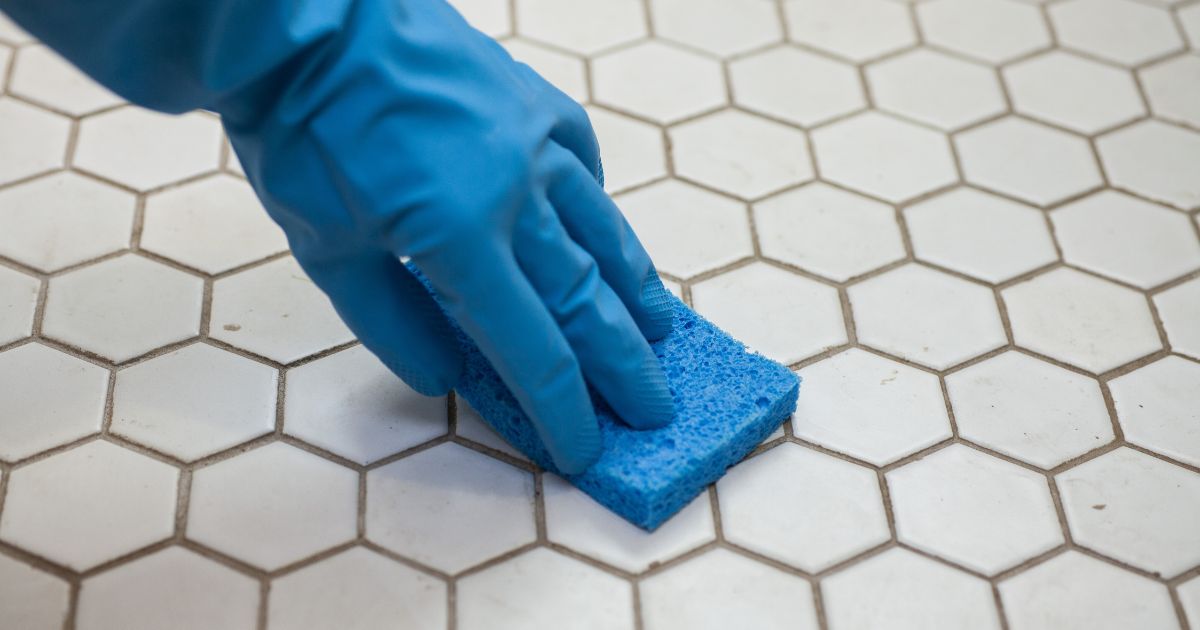
Be aware of the adverse effects that bleach can have on natural stone, like marble. Calcium carbonate, the primary compound in marble, can be highly reactive to both acidic and alkaline cleaners. Therefore, your tiles may end up etched, pitted, or discolored.
Porcelain tiles, renowned for their durability and versatility, are relatively low-maintenance. Regular sweeping and occasional mopping with a neutral cleaner keep them looking fresh. We always recommend a mixture of water, mild detergent, and vinegar.
Ceramic tiles, ideal for wall applications, benefit from routine cleaning with a mild detergent and water solution. Avoid using harsh chemicals that can damage the glazed surface. Regular grout cleaning prevents discoloration and maintains the overall aesthetic appeal.
By incorporating these simple maintenance practices into your routine, you can enjoy the timeless beauty of your tiles for years to come.
Shopping for Tiles
When shopping for tiles, consult with specialists who understand the intricacies of each tile type and can guide you towards the best options for your space. Bringing home samples allows you to visualize how the tiles will look in your environment. Designers can provide invaluable assistance in coordinating colors, patterns, and finishes to create your dream space.

At Procida Tile, we're more than just tile experts – we're trained interior designers dedicated to ensuring your renovation journey is stress-free and rewarding. From selecting the perfect tile to coordinating with other elements of your design, we're here to make your vision a reality.
In conclusion, selecting the right tile for your home involves considering durability, functionality, and aesthetic appeal. With the diverse range of tile options available, there's something to suit every style and space. Whether you opt for the timeless beauty of natural stone or the practicality of porcelain, investing in quality tile ensures a beautiful and long-lasting finish for your home.
So, come visit us at Procida Tile, and let's turn your tile dreams into reality!
NEED MORE HELP? MEET WITH AN INTERIOR DESIGNER
Our dedicated experts guide you through every step of tile selection, wallpaper pairing, and even wall color coordination. Experience unparalleled customer service and expert interior design advice that sets us apart from the rest. Your dream space awaits!
Related Blog posts
How to Measure Square Feet for Tile: A Step-by-Step Guide
Planning a tile project starts with one crucial step: knowing how much tile you need. Whether you're tiling a bathroom floor, a kitchen backsplash, or an entire shower, calculating square footage ensures you order the right amount—without wasting money or running short mid-project.





